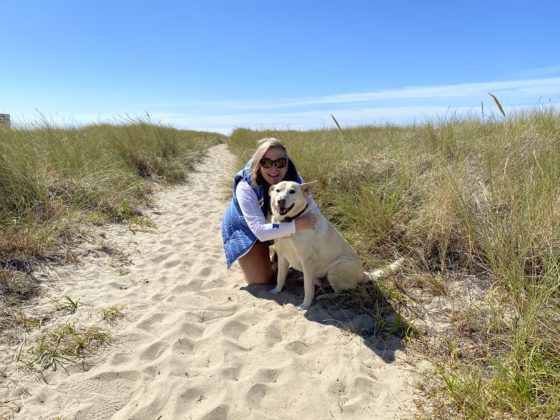Happy New Year from Alumni Career Services! Are you looking for a good read for 2021? Take a look at what our career coaches read over the holidays, spanning the gamut of topics from life skills to career reinvention to business leadership, and read their reviews below.
- Billion Dollar Loser: The Epic Rise and Spectacular Fall of Adam Neumann and WeWork by Reeves Weideman (October 2020)
- Boomer Reinvention: How to Create Your Dream Career Over 50 by John Tarnoff (February 2017)
- Goliath’s Revenge: How Established Companies Turn the Tables on Digital by Todd Hewlin and Scott A. Snyder (February 2019)
- Love is Free. Guac is Extra.: How Vulnerability, Empowerment, and Curiosity Built an Unstoppable Team. by Monty Moran (October 2020)
- The First 90 Days: Proven Strategies for Getting Up to Speed Faster and Smarter by Michael Watkins (May 2013)
- You’re Not Listening: What You’re Missing and Why It Matters by Kate Murphy (January 2020)
Gwen Mellor
Billion Dollar Loser: The Epic Rise and Spectacular Fall of Adam Neumann and WeWork by Reeves Weideman (October 2020)
Reeves Weideman’s Billion Dollar Loser: The Epic Rise and Spectacular Fall of Adam Neumann and WeWork is an electric read that I couldn’t put down. It offers specific insights into what went wrong at the startup and should be required reading in MBA programs.
In the 2010s, LinkedIn founder Reid Hoffman taught “Technology-Enabled Blitzscaling” at Stanford, a course focused on the increasingly popular notion of “purposefully and intentionally doing things that don’t make sense according to traditional [business] thinking.” In accordance with “blitzscaling,” entrepreneurs are encouraged to focus on “lightening” growth in an effort to become “too big to fail.” This is exactly what Adam Neumann does almost immediately after he and co-founder Miguel McKelvey opened their first WeWork location in Manhattan in early 2010.
Despite being fully aware of accounting discrepancies and governance issues at WeWork, investors threw good money after bad until a planned IPO could not get off of the ground and board members pushed Neumann out of the company, similar to what had happened to Travis Kalanick at Uber.
Above and beyond Neumann’s incredible behavior and ego, what stood out to me most was the willingness of seemingly sophisticated investors to fall for founders’ outrageous pitches that are completely asynchronous with companies’ financial reporting. When unrestrained corporate culture is layered on top of those challenges, WeWork eventually turns into WeFail.
Marty Speight
Boomer Reinvention: How to Create Your Dream Career Over 50 by John Tarnoff (February 2017)
There are plenty of books that address the topic of working in retirement, and most of them follow the same narrative arc:
- First, a passionate admonition about how work is changing and why you should, too.
- Second, career case studies drawing on the author’s own coaching practice or experience.
- Third, a set of do-it-yourself exercises to guide one through this transition.
Tarnoff’s unfortunately named Boomer guide follows this same arc but brings in his unique perspective as a former corporate executive turned trained psychologist. He presents the process of reinvention as a five step “methodology” (Reframing, Listening, Accepting, Expressing, Connecting) and offers 23 “strategies” for digging into these steps. Positive psychology techniques animate these strategies and most have fill-in-the-blank worksheets (which you can download from his website). There is merit in most of these steps, but it’s an overwhelming array of stuff to do, and it’s not clear where to begin. He tries to reconcile this in the final few pages of the book by offering a “three-month sample reinvention timeline,” which only serves to highlight the daunting complexity of his approach. He also presents seven well-detailed case studies, but does little to connect their stories to his methodology. My takeaway from his case studies is the same as my work with alumni making this transition — finding meaningful work in retirement is a very personal process of inner discovery (what do you really want?) that takes years of evolution (there is no quick fix) with lots of trial and error along the way.
Tarnoff’s book is an OK read for anyone who wants to dive deeply into the psychology of career change, but his approach will likely fall short without having a coach to guide your efforts. Here’s a link to the resources Alumni Career Services currently recommends for finding meaningful work in retirement.
Daniel Lee
Goliath’s Revenge: How Established Companies Turn the Tables on Digital by Todd Hewlin and Scott A. Snyder (February 2019)
Goliath’s Revenge is not a real page-turner. Not because the texts are uninspiring, but because it requires readers to be intimately engaged in honestly evaluating where they are in this world of digital transformation spectrums. The authors guide you through a series of frameworks and example stories, then ask you to assess whether you (and your company) are ready to handle digital disruptions. The authors do a great job highlighting key points with easy-to-relate case studies (e.g., Netflix’s focus on “market-shaping customer outcomes,” such as its no late fee DVD rental program in its early days, partly contributing to the demise of Blockbuster video stores). The following six guiding principles of digital transformation are outlined in the book:
- Deliver market-shaping customer outcomes
- Balance top-down and bottom-up innovation
- Unlock the latent value in existing data assets
- Accelerate innovation through external networks
- Build the digital skills needed for lifetime employment
- Use your purpose to fuel disruptive opportunities
As the title implies, the book is about teaching old dogs new tricks and having them learn well. One does not need to be working at a startup company to drive digital transformation. Established and seasoned players can best position themselves with their existing assets and know-how. It’s a good book for professionals and executives who are hoping to weather through the sea of digital uncertainties.
Stacey Milne
Love is Free. Guac is Extra.: How Vulnerability, Empowerment, and Curiosity Built an Unstoppable Team. by Monty Moran (October 2020)
Love is Free. Gauc is Extra. is a positive, feel-good read to start the year and reflect on your leadership philosophy and career. Monty Moran, the former co-CEO of Chipotle Mexican Grill, shares his life’s journey of gathering bits and pieces of knowledge that fit together into a worldview and an understanding of how to lead people and build successful teams. Not the typical leadership book, Moran focuses on the softer concepts he believes are the key to success: truth, vulnerability, gratitude, curiosity, empowerment and, yes, love.
From his first job as a property claims adjuster for Farmers Insurance, to his law firm days as a trial lawyer and managing partner, to his role of co-CEO at Chipotle, Moran shares career insights and how he developed his definition of leadership. The book is filled with real-life experiences that any leader can apply.
After a career in the hospitality industry, I do not find Moran’s leadership philosophy and practices new or groundbreaking. However, the book is an enjoyable read, and it’s an excellent reminder that culture starts at the top and that a people-focused leadership approach can drive significant corporate results and allow those that are being led to realize their full potential.
Evan Inra
The First 90 Days: Proven Strategies for Getting Up to Speed Faster and Smarter by Michael Watkins (May 2013)
In a post-COVID-19 pandemic world, the importance of getting off to a strong start in a new role is more important than ever. Whether you have been promoted, are transitioning into a different department or are starting at a new company, The First 90 Days by Michael Watkins provides proven strategies to help you succeed quickly. Watkins provides key tools you can use to quickly get up to speed and get to the “break-even point” — the point where you have contributed as much value to your new organization as you have consumed from it. Typically, this takes as long as six months, but you can help reduce this timeframe to increase your chances for ultimate success by: preparing yourself, accelerating learning, matching your strategy to the situation, securing early wins, negotiating success, achieving alignment, building your team, creating coalitions, keeping your balance and accelerating everyone. Most importantly, be flexible, listen and quickly adapt as needed to the needs and challenges of your new role. How you manage your transition will determine whether you ultimately succeed or fail in your new role. Use Watkins’s framework to help ensure this new role is your best move yet.
Jen Coleman
You’re Not Listening: What You’re Missing and Why It Matters by Kate Murphy (January 2020)
For a career coach, there is no more important skill than listening. Listening is a skill I am always striving to improve and is the reason I picked up this book. I was pleasantly surprised by its content. In this well-researched work, Murphy, a career journalist, describes what makes for good listening, why we humans are all generally so bad at it (and getting worse), and why it is so important both personally and professionally. She points out, so accurately, that in education, there is such an emphasis on speaking — public speaking, presenting, debating — but little education around listening, which Murphy argues is the far more important skill in communication.
In my experience working with job seekers, their natural concern is always with selling themselves, explaining their situation and delivering an effective elevator pitch. While of course you need to be able to communicate your value, this book confirmed my strong belief that — whether you are trying to figure out what you want to do, are networking, interviewing or negotiating — less is more; especially since, according to the author, the odds are whoever you are talking to isn’t listening to you anyway! Active listening makes you smarter, more interesting and more likeable. There is a strong chance that good listening will lead to more sound, more informed career decisions and definitely to better relationships. And “if you are not listening in a negotiation context, you’re kind of screwed.”
If you are a coach, a job seeker, a manager, a friend, a partner or a human, you are likely to get something meaningful from “You’re Not Listening.”





